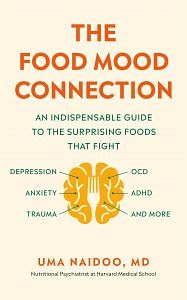It’s not difficult to feel the connection between your gut and your memory. If you see an old partner who cheated on you, you might instantly become nauseous. If you drive down a street where you ate a delicious meal, you may start to salivate and your stomach might grumble. Given that your gut “remembers”, it should come as no surprise that it works hand in hand with your brain’s memory systems. The key to that connection lies in the chemicals that make your brain and body function, many of which are regulated by your gut.
For example, the stress hormone cortisol can disrupt your ability to recall long-term memories, and as we’ve covered before, your gut bacteria affect blood cortisol levels by regulating the hypothalamic-pituitary-adrenal axis. That means that the wrong balance of gut bacteria can lead to a spike in cortisol, which in turn can put a damper on your ability to recall memories.
Memory is also affected by levels of other neurochemicals, such as noradrenaline, serotonin and dopamine. For instance, we now know that noradrenaline enhances memory, especially when emotions are running high. And studies have identified a close association between a serotonin-dopamine imbalance and changes in brain tissue that lead to learning and memory impairment. Once again, all these neurochemicals are dependent upon gut bacteria to produce the necessary precursors to keep them at healthy levels.
The vagus nerve can enhance memory when stimulated because it connects to brain structures like the amygdala and hippocampus, which are central to memory formation. Since gut bacteria can change vagus nerve activation, that’s another way in which they affect your memory.
Also read: Is it dementia if I forget a name or a word?
The most telling sign that there is a strong connection between the gut and memory is that the composition of gut bacteria changes in patients afflicted with several memory-related diseases. For instance, in Parkinson’s disease patients like Brian, there is a significant decrease — 77.6 per cent — of the specific gut bacterium Prevotellaceae compared to controls. And the microbiomes of Alzheimer’s patients have decreased Firmicutes, increased Bacteroidetes and decreased Bifidobacterium.
Sometimes the relationship can run the other way, with changes in gut bacteria altering the course of these diseases. Rosacea is known primarily as a skin condition in which people blush or flush more easily, but rosacea patients also have a slightly increased risk of developing dementia, particularly Alzheimer’s disease. Changing gut bacteria can make a huge difference for rosacea patients. In 2009, Andrea Parodi and colleagues demonstrated that when you eradicate small-intestine bacterial overgrowth common in rosacea, the skin condition goes away. This microbiome-based treatment can last up to nine months, and with the rosacea in remission, the risk of dementia is likely reduced.
Researchers also believe that gut bacteria trigger metabolic processes and brain inflammation that impact memory, and they may also compromise blood flow in the brain. In addition, changes in gut bacteria may increase amyloid deposits, thereby contributing to Alzheimer’s disease. Modification of the gut microbiome by diet or by using probiotics may offer new preventive and possible therapeutic options for Alzheimer’s.
All this evidence points to the idea that we may be able to reduce the possibility of dementia by avoiding foods that compromise our gut bacteria and eating foods that enhance them.
Also read: A blood test can predict dementia. Trouble is, there’s no cure
Foods that weaken memory
In order to understand which foods are helpful or detrimental to memory, it’s important to note that there are many different memory systems in the brain. For example, procedural memory systems help us to learn tasks such as playing the piano, typing, or playing golf. Relational memory includes remembering facts and events such as a new acquaintance’s name or facts about the world. Working memory is short-term memory that we need to remember phone numbers or directions for how to get somewhere we’ve never been.
With all that in mind, let’s look at how different foods and diets can harm or help these different kinds of memory.
The Western Diet
Once more we see the destructive effects of the Western diet. High-fat and high-glycaemic-index (high-GI) foods can alter brain pathways necessary for learning and memory, with neurons in the hippocampus and prefrontal cortex especially affected.
The hippocampus is the part of the brain most involved in forming relational memories. Fascinatingly, hippocampal size actually changes when you practise remembering. For example, the hippocampus is bigger in London taxi drivers, who have to memorize extensive and complicated routes through the streets of London. However, when diets high in fats and sugar damage the hippocampus, it tends to shrink, which impedes memory. Furthermore, the hippocampus is responsible for regulating how much food we eat. Damage to this region makes portion control more difficult, which in turn can lead to overeating, creating a cycle that can be hard to break.
High-fat and high-GI diets can affect the hippocampus in a variety of ways. First, the Western diet can hamper the expression of critical growth factors like brain-derived neurotrophic factor and other hormones that promote healthy function in the hippocampus.
Second, poor diets can affect insulin signalling and insulin sensitivity in the body’s tissues. It’s unclear exactly what insulin’s role is in the hippocampus, but studies have indicated that it likely impacts memory. One recent study showed that high saturated fat intake in male rats interfered with insulin signalling in the hippocampus, which led to interference with hippocampal function and corresponding relational memory abilities.
Third, a diet high in saturated fat and refined sugar in male rats showed increased oxidative stress, which damages brain cells and reduces the efficacy of cell-to-cell communication in the hippocampus.
Looking beyond the hippocampus and relational memory, a study from 2019 showed that obesity caused by a poor diet can lead to changes in cognitive control and the function of the prefrontal cortex and its impact on working memory as well.
Also read: Multitasking between different digital media linked to memory failure, finds Stanford study
In addition to these direct effects on the brain, the Western diet compromises the blood-brain barrier, which is tasked with keeping toxic substances out of the brain.
Dietary components such as saturated fat may also exacerbate inflammation in the brain, which has been linked to cognitive decline in aging and risk of developing Alzheimer’s disease. Inflammation disrupts many of the chemical pathways instrumental in memory formation, such as those that rely on dopamine and glutamate. The nerves themselves become sluggish and information travels far more slowly.
There is also some indication that high-fat diets have different effects at different ages. Chloé Boitard and her colleagues demonstrated that while juvenile exposure to a high-fat diet decreases memory and brain growth in mice, the same effects were not observed in adult mice. Human studies, however, indicate that high fat consumption is detrimental to memory in adults as well. It’s worth noting that the developing brain in children and adolescents is particularly sensitive, which means we should be extra-vigilant about the foods they are eating.
Thankfully, it appears that the damage done by a high-fat diet can be undone. In 2016, Boitard and her team found that in adolescent rats, these brain changes are reversible by switching from the high-fat, high-sugar diet to a more standard and well-balanced diet. And in 2019, Paul Loprinzi and his colleagues found that in seventeen studies, sustained exercise in rodents reduced high-fat-diet memory impairment. So, cutting back on bad fat, bad carbs and sugar; eating a healthy, whole-foods diet; and exercising regularly are likely to help reverse the damage and enhance your brain’s ability to remember.
 This excerpt from The Food Mood Connection: An Indispensable Guide To The Surprising Foods That Fight Depressions, Anxiety, PTSD, OCD, ADHD And More by Uma Naidoo has been published with permission from Hachette.
This excerpt from The Food Mood Connection: An Indispensable Guide To The Surprising Foods That Fight Depressions, Anxiety, PTSD, OCD, ADHD And More by Uma Naidoo has been published with permission from Hachette.




These scientists only accepts things until they have reached a conclusion after a research but won’t accept traditional and ayurvedic system of medicine which always says for satvik diet.They just want to hold their ear in round around manner and waste money in name of science and research and if they find something new,get it patended
That’s what the old scriptures said all the time